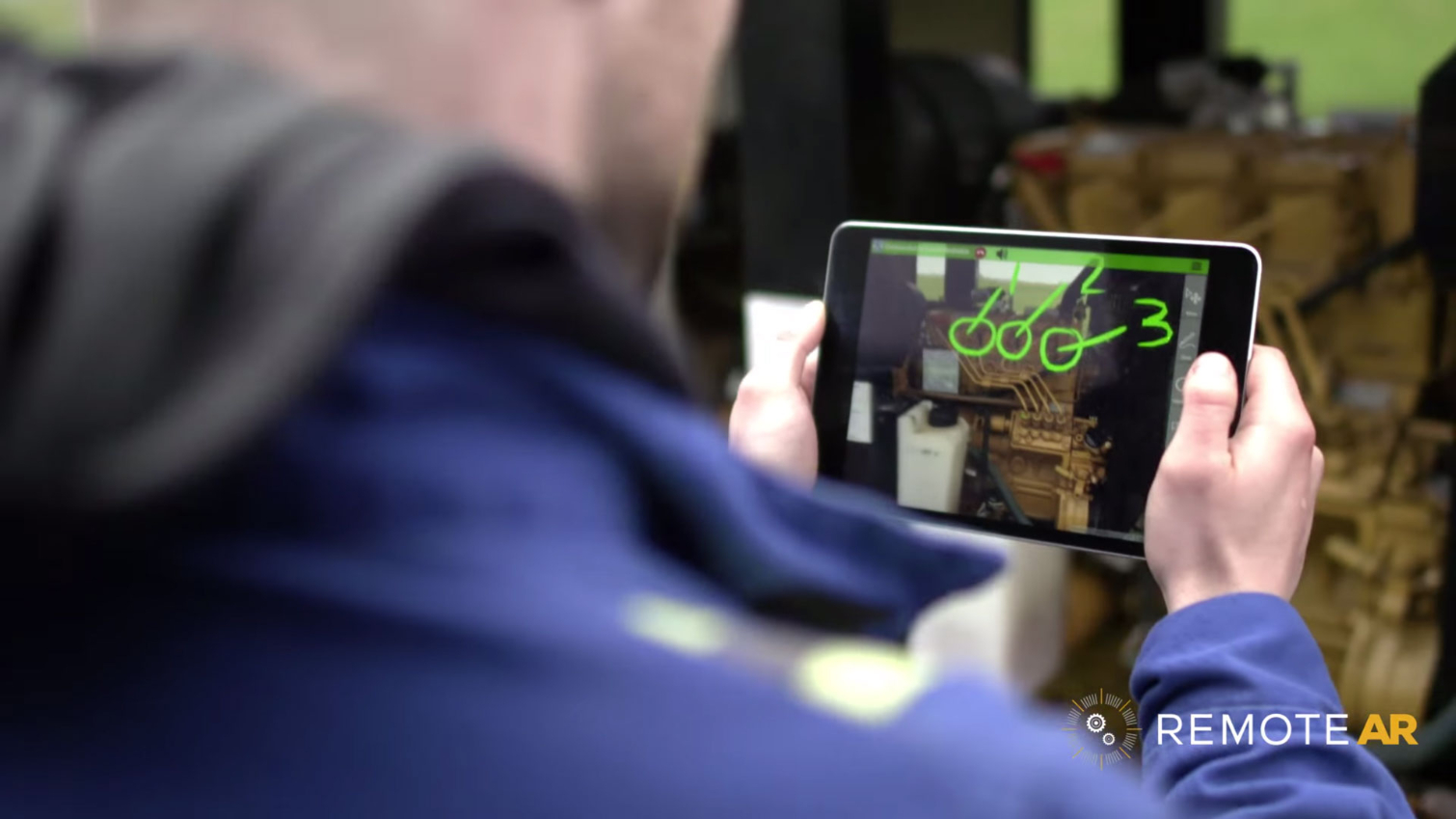Scope AR’s Platform Now Offers Markerless Tracking, Tango Support
Scope AR announced that it's bringing markerless tracking to the Remote AR remote assistance platform. The company adopted Wikitude’s SLAM Instant Tracking SDK to bring spatial tracking to regular smart devices. Scope AR is also preparing for the future of smart device spatial tracking with support for Google’s Tango platform.
Previous versions of the Remote AR platform provided rudimentary tracking that relied on tracking markers. You could place a fiduciary marker on the object you wanted to track, but it didn’t offer 3D tracking, so the tracking was limited to one plane. One of Remote AR’s features allows you to draw on the augmented image to highlight the area you need assistance with. With the marker-based tracking system, you had to stay in the same place to keep the augmented imagery in the correct location on the screen.
The other obvious problem with a marker-based tracking system is that you must carry around fiduciary markers so you could use Remote AR.
“One of the limitations we found with a lot of customers was that you had to have a fiducial marker positioned so that it allows you to position the 3D content so you could collaborate between the expert and the technician,” said Scott Montgomerie, CEO, and co-founder of Scope AR. “A lot of customers had no problem with that, but if you don’t have one, you can only use the video tool, so a lot of [Remote AR’s value to the customer is lost].”
The latest version of Remote AR serves to solve the forgotten marker problem by removing the need to use them. Scope AR announced that it adopted Wikitude’s Instant Tracking technology to enable 3D spatial tracking in Remote AR on any smart device. Wikitude’s Instant Tracking is based on SLAM (simultaneous localization and mapping) technology, which analyzes the differences between frames produced by the video camera to infer distance and depth. With this technology, Scope AR can offer markerless tracking with the same capability as its marker-based system.
“Markerless tracking is one of the major hurdles AR has been facing before becoming more accessible for enterprise and industrial use. We’re excited to collaborate with the leading innovator for markerless tracking, Wikitude, to bring this to life for our users,” said Montgomerie. “With Remote AR’s latest updates, users can have the benefits of markerless tracking on standard devices, making it even easier to implement AR for their specific uses.”
SLAM-based tracking allows Scope AR to continue to support Remote AR on a wide range of devices, but it still has limitations. Montgomerie told us that to achieve the real vision for Remote AR; you must use a device that can truly detect three-dimensional depth. Google’s Tango technology is one of the first platforms available that allows Scope AR to bring its vision to life. The latest version of Remote AR offers support for Google Tango and its 3D camera system. With Tango, not only do you get the benefit of a markerless system, but you also get true 3D virtual workspace. Tango allows you to place notes and to draw in your 3D environment, which allows you to move around and glance back at the marking from any angle. The SLAM-based solution is limited to 30-degree viewing angles.
Get Tom's Hardware's best news and in-depth reviews, straight to your inbox.
Scope AR recently announced support for Microsoft’s HoloLens in Worklink, one of the company’s other products. We asked Montgomerie if his company has any plans to bring Remote AR to the Hololens platform. He wouldn’t say whether Scope AR is currently working on HoloLens support for Remote AR, but he acknowledged that “there is a lot of desire for a wearable device in the industry.” He also noted that we could expect to hear more news from Scope AR in the next few months.
Scope AR’s Remote AR update is out today. If you have a license for Remote AR, you should have access to the new version already. If you’re interested in purchasing a license, visit the Scope AR website for more information.
Kevin Carbotte is a contributing writer for Tom's Hardware who primarily covers VR and AR hardware. He has been writing for us for more than four years.
